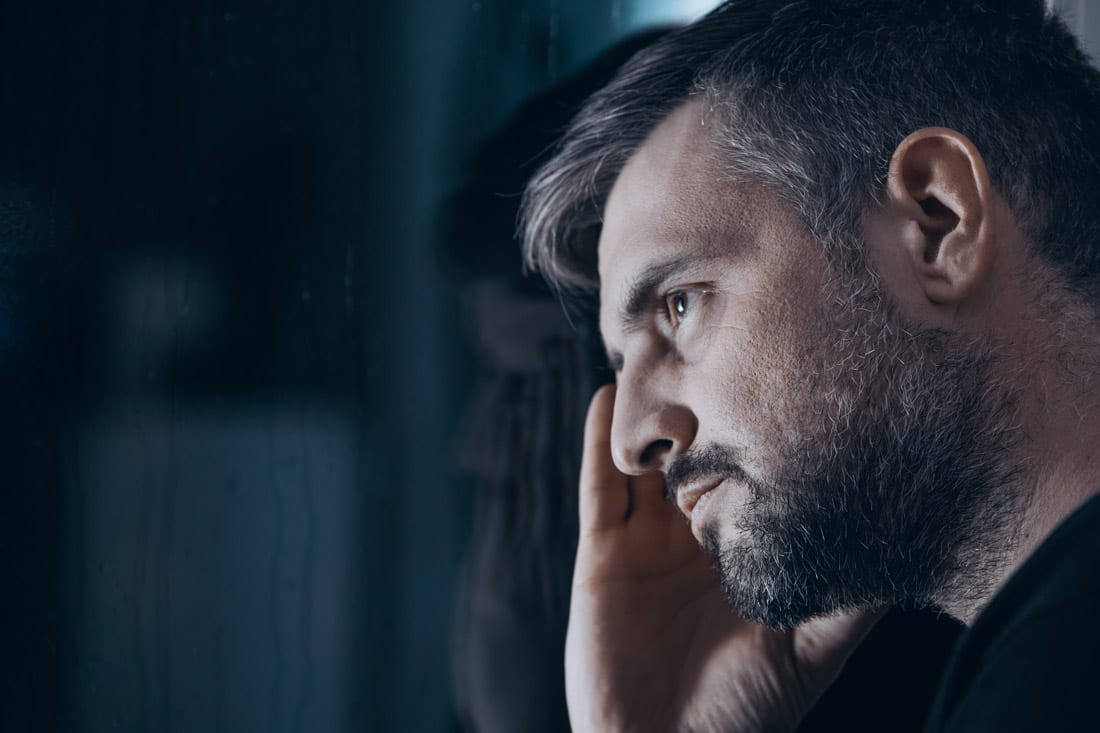Why it’s okay to feel uneasy and what you can do when it strikes
STORY: Nicole Letts
According to the World Health Organization, one out of 13 people suffers from anxiety. We’re so riddled with it that the mere word has become commonplace.

Photo: Haley Hunt Davis
Ashlyn Ayres Ellington, a clinical social worker and therapist at Peachtree Psychiatric Professionals in Buckhead, says there’s a reason anxiety plagues nearly 40 million Americans. “Anxiety is now more generally discussed and normalized. People don’t feel shame around saying ‘I have anxiety’ or ‘something makes me anxious.’”
Distinguishing between clinical anxiety and general nervousness is difficult. Explains Ellington: “We have to remember that with anxiety, you never want to flip that emotion off completely in your brain. It’s there to keep you safe. If you’re crossing the street and a car is coming at you really fast, we want you to feel anxious, so your body kicks up that energy and muscle tension to move quickly out of the way.”
So is anxiety actually an emotional benefit? Ellington says yes and no. “The problem is that the same system that fires up when you see a car coming at you is also firing up when you’re laying in bed at night and don’t need that system to be firing.”
So how do you shut off anxiety in those moments? That’s where mindfulness comes in. “It’s that practice of sitting and being okay with being still,” says Ellington.
“Mindfulness is just turning your attention to the present moment and staying there and non-judgmentally noticing what’s happening. When your mind gets sidetracked, which it will, just noticing it and pulling it back [helps].” Mindfulness, however, is only part of the solution. For one thing, powering down your devices can help your busy brain recalibrate. “I think as wonderful as technology is, we have to be able to take breaks and not have all the information to be able to fix [a problem] right away,” says Ellington. “We’re now into fast problem-solving, and if we can’t solve it right away, then we get really anxious.” Other daily coping strategies such as journaling, exercising and even needle pointing are often recommended by experts. Meditation is one of the most common solutions, as it’s been proven to not only reduce anxiety but also even help reverse the damage caused by anxiety.
There’s also a chance that other preventative care, such as medication, could be recommended. “We look at medication through this analogy of having the right tennis shoes to run a marathon,” says Ellington. “Having the right shoes doesn’t automatically get you across the finish line. There’s still tons of training that goes into crossing that finish, but sometimes you need that specific help of having the right shoes to make it.” By having a toolbox of both strategic coping skills and medication, patients are better able to manage their anxiety.
In the end, Ellington says it’s important to remember that anxiety is normal. “You’re supposed to have that feeling,” she says. “Your brain is trying to help you, which is what it’s designed to do. But that emotion is going to misfire sometimes. If you feel like it’s misfiring repeatedly in situations where you really don’t need that emotion to be there, there are things you can do to get some relief. You don’t have to feel this way. I want people to feel hopeful.” She also reminds us that while uncomfortable, stress itself is not entirely bad. “We need to figure out how to problem-solve and [get our stress level] down low enough so we can get through it, because it cannot be avoided.” And that’s okay.
PEACHTREE PSYCHIATRIC PROFESSIONALS
3520 Piedmont Rd. N.E.
Atlanta, GA 30305
404.351.2008
ppp-pc.com
Wellness columnist at Simply Buckhead and dog columnist at Atlanta Pet Life. Lifestyle writer specializing in women's interests, travel, people and interiors.


















